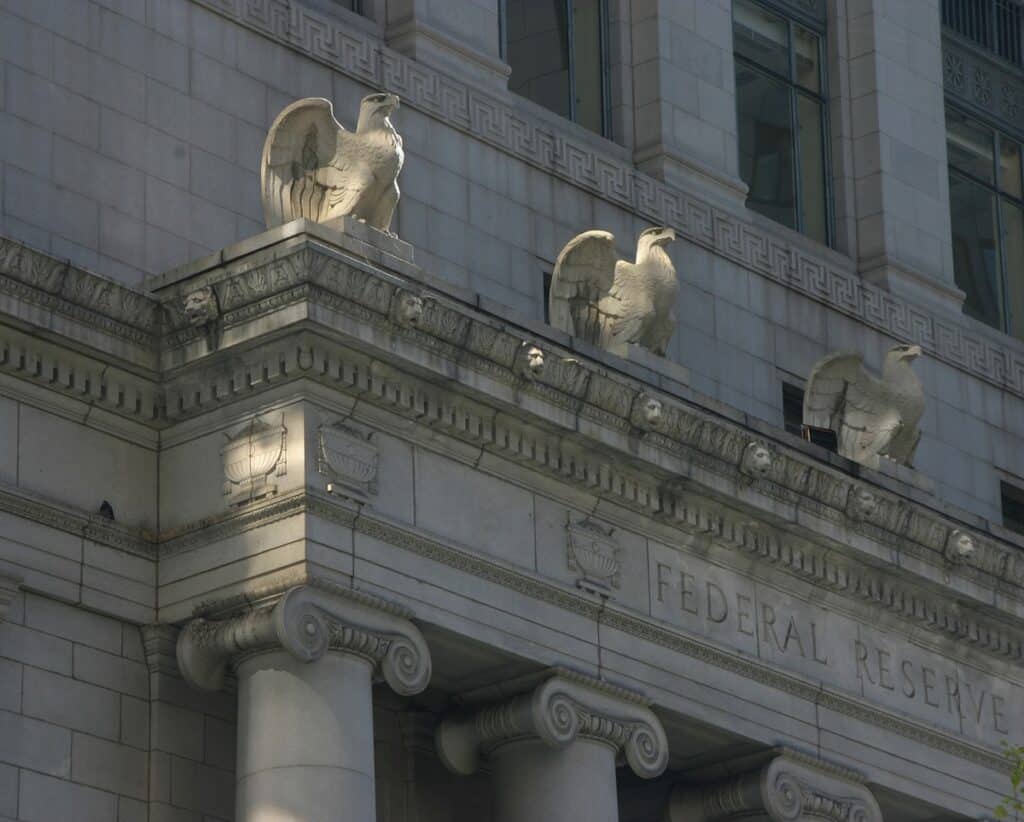On the heels of Tuesday’s Presidential Election and the naming of Donald Trump as the 47th U.S. President, at the conclusion of today’s Federal Open Market Committee (FOMC) by the Federal Reserve, the Committee decided to lower the target range for the federal funds rate by 1/4 percentage point to 4.5% to 4.75%, the lowest level since March 2023.
Today’s rate cut marked just the second cut in the benchmark interest rate, a move that will further force lower borrowing costs for consumers and businesses. After four years of no rate cuts, the Fed reduced rates in September for the first time in four years.
“The Committee [FOMC] will continue reducing its holdings of Treasury securities and agency debt and agency mortgage‑backed securities,” said the Federal Reserve in a statement. “The Committee is strongly committed to supporting maximum employment and returning inflation to its 2% objective.”
The Fed cut rates to near zero in March 2020 in response to deal with the economic impact from COVID-19 lockdowns. Then in 2022-2023, raised rates to over 5%. In September, the Fed voted to cut rates as inflation began to moderate.
Mortgage Bankers Association (MBA) SVP and Chief Economist Mike Fratantoni noted, “Financial markets fully anticipated this rate cut, and the FOMC’s statement provides no new information regarding the likelihood of future cuts. The big impact on rates this week was clearly the election. As results rolled in, longer-term rates jumped higher. Investors expect somewhat stronger economic growth, higher inflation, and larger deficits.”
Just a day after Kamala Harris conceded to Donald Trump in the Presidential Election, many felt that Trump’s economic policies would weigh on the outcome of the Federal Reserve’s meeting, but as Realtor.com Chief Economist Danielle Hale explained, “The Fed is an independent and apolitical institution. While markets, businesses, and consumers are adapting to the implications of the Presidential and other election results, the Fed kept its focus on monetary policy and, as expected, did not comment on the implications of the election in its statement.”
As for the remainder of 2024 for the mortgage landscape, Freddie Mar reported today that the 30-year fixed-rate mortgage (FRM) averaged 6.79%, up from last week when it averaged 6.72%. A year ago at this time, the 30-year FRM averaged 7.50%.
“Forecasts of how far mortgage rates will fall at the end of 2024 and into 2025 are shifting,” said Bright MLS Chief Economist Lisa Sturtevant. “Prospective home buyers and sellers should still expect mortgage rates to fall through the end of the year and into next year, bringing welcome relief from rates that were over 7% earlier this year. But it is likely to see rates to be volatile over the coming weeks, ending the year in the low- to mid-6s. Looking ahead to 2025, mortgage rates will likely continue to come down, assuming no major inflationary pressures, though it is possible to see the average rate on a 30-year fixed rate mortgage remain above 6% through most of 2025.”
Hale added, “Economic growth in the form of job gains and wage increases mean additional buying power for homeowners, but the higher interest rates that accompany stronger economic growth may continue to be a hurdle for homeowners with low existing mortgage rates contemplating a move. More than four in five homeowners with a mortgage have an existing rate below 6%, a threshold well-below today’s market rate. And while first-time home buyers are unconstrained by the lock-in effect, softer rent growth and still elevated home prices and down payments, mean that getting a foot in the door is no small feat. Despite these challenges, Americans remain optimistic about homeownership, and homebuilders are positioned to fill in the gaps, especially if policy makers at the federal, state, and local levels can clear challenges to building. While existing home sales continue to tread near 30-year lows, new home sales remain on par with a pace similar to 2019, and even as existing home prices continue to climb, a focus on smaller-footprints and affordability has kept new home prices more steady.”





